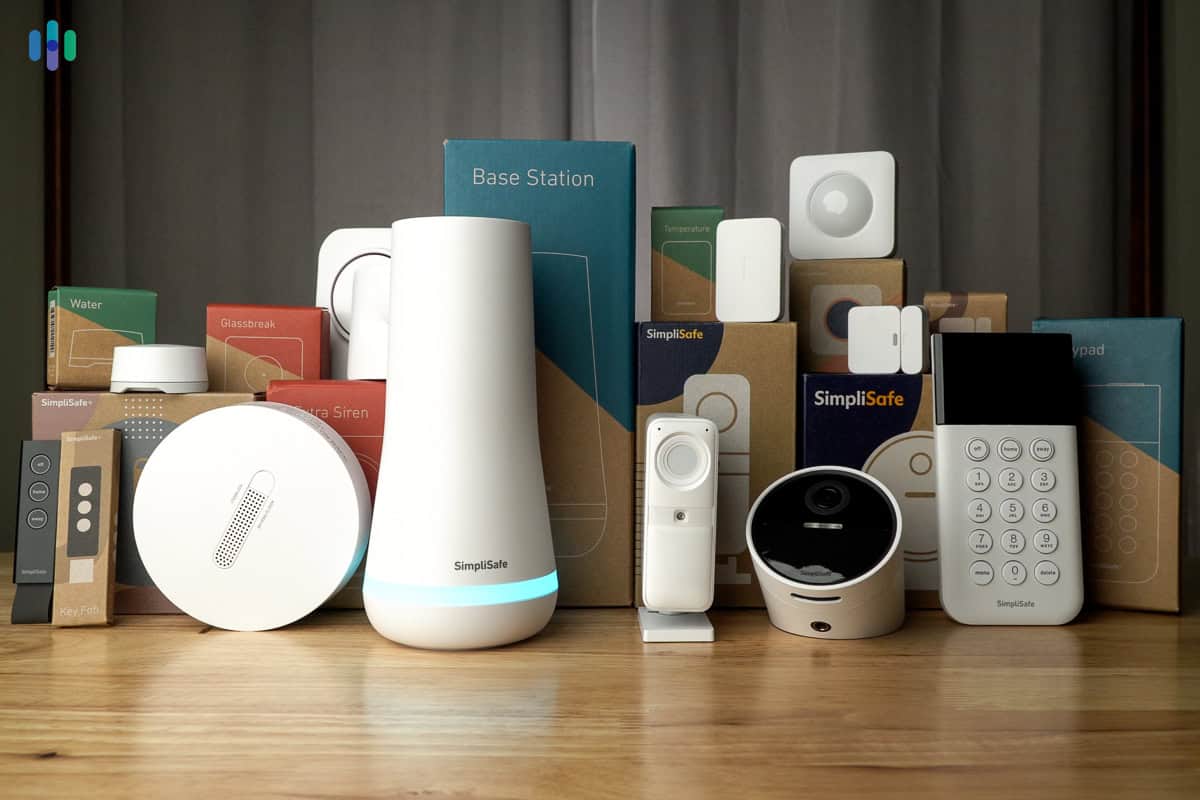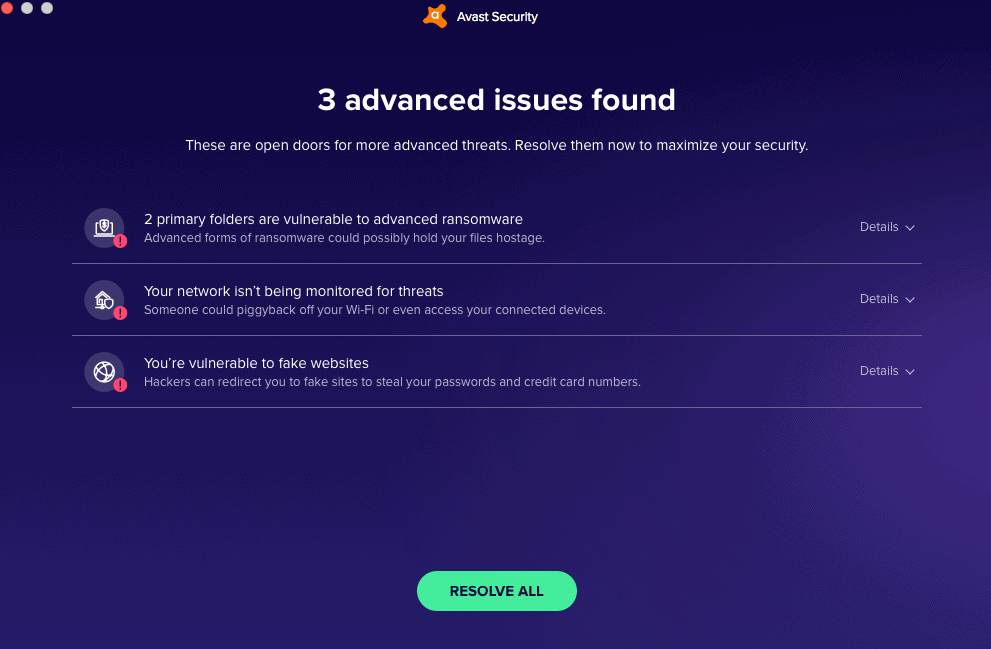NordVPN vs. TorGuard — Comparing Feature-Rich VPNs
NordVPN is our preferred VPN, but TorGuard’s advanced features had us thinking twice.

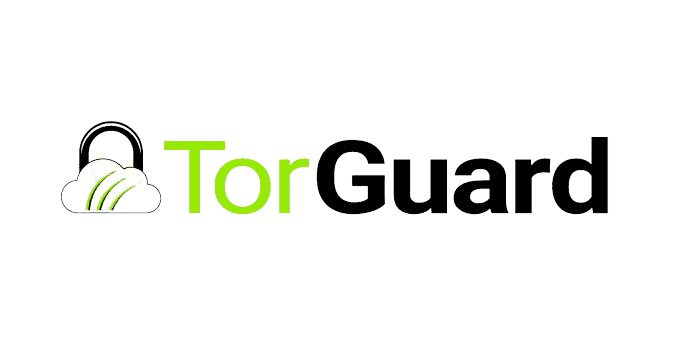
 Aliza Vigderman, Senior Editor, Industry Analyst
&
Aliza Vigderman, Senior Editor, Industry Analyst
&
 Gabe Turner, Chief Editor
Last Updated on Jul 11, 2025
Gabe Turner, Chief Editor
Last Updated on Jul 11, 2025

- A two-year plan currently costs just $3.09 per month.
- Multi-hop feature routes connection through two VPN servers and two layers of encryption.
- Over 7,200 servers spread throughout 118 countries.

- Free dedicated IP address
- Personal and business VPN options
- Over 3,000 servers in 50 countries

How do you choose a VPN when the features list is practically identical? That’s the issue we ran into when we started comparing TorGuard and NordVPN. Both VPNs block annoying ads, offer extra protection with multihop, and have a kill switch if our connection drops out. The only way to choose a winner was to buy our own subscriptions and get hands-on with them.
So that’s what we did. It wasn’t until we started running NordVPN and TorGuard on our devices that we noticed NordVPN performed better. It was faster, and the apps were more modern and easier to use. But TorGuard is still an excellent VPN that is worth considering if NordVPN doesn’t meet your needs. Let’s break down the results of our testing to help you make a decision.
>> Read More: A 2025 Guide to VPNs
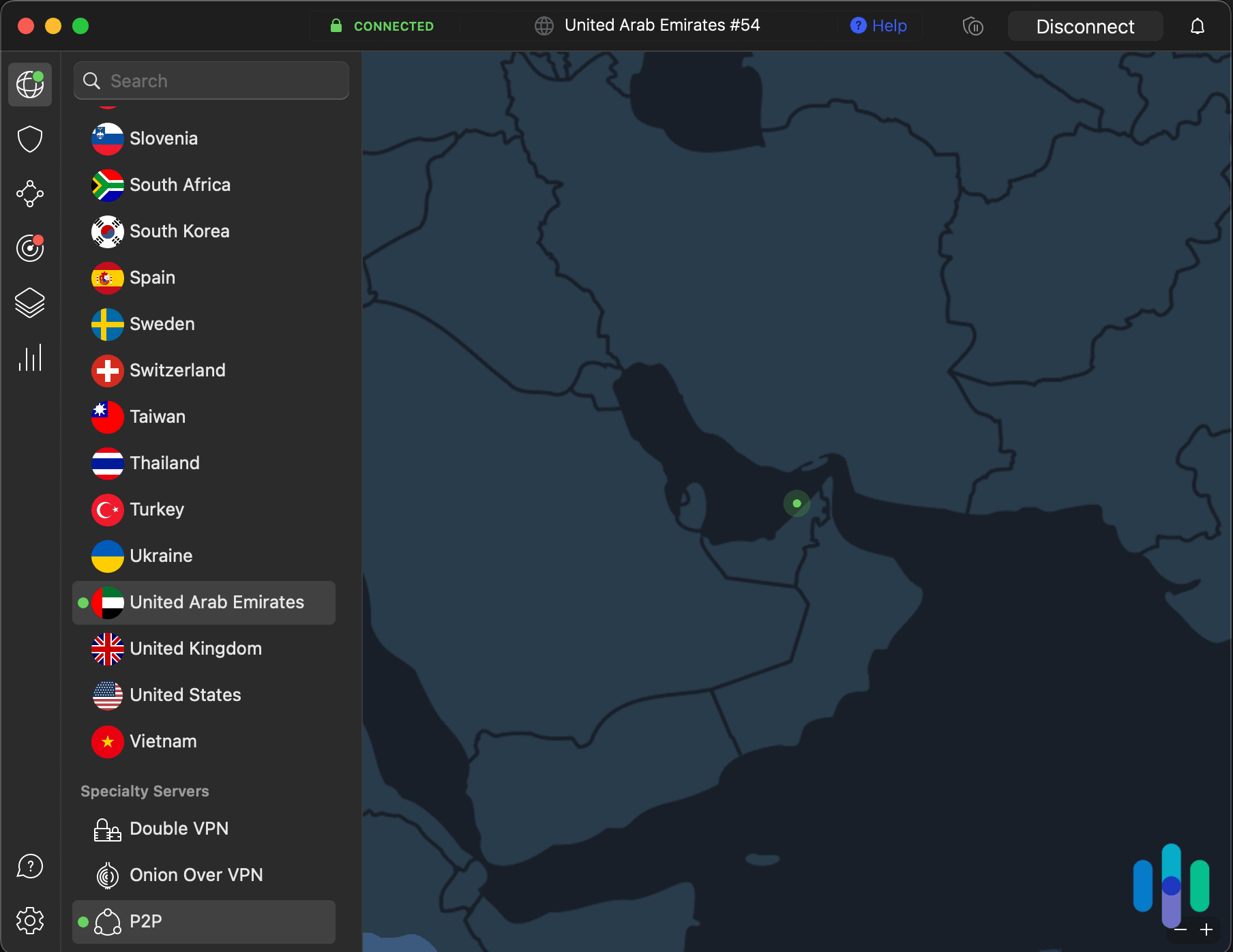
FYI: NordVPN has won numerous accolades, including the No. 1 best VPN of 2025, the top-performing gaming VPN, and the best VPN for video streaming thanks to its comprehensive feature set and impressive speeds.
Advanced Features Comparison
Let’s start with what we thought NordVPN and TorGuard both did well, and that is offering features beyond what most VPNs do.
| Features | NordVPN Plus | TorGuard Pro |
|---|---|---|
| Price per month | $13.99 | $14.29 |
| Annual price | $82.35 (avg. $5.49/month) | $65.49 (avg. $5.46/month) |
| Multihop | Yes | Yes |
| Split tunneling | Yes | No |
| Port forwarding | No | Yes |
| Torrenting access | Yes | Yes |
| Malware protection | Yes | Yes |
| Ads and tracker blocking | Yes | Yes |
| Password manager | Yes | No |
| Static IP addresses | No | Yes |
| Dedicated IP addresses | Starting at +$3.69/month | 1 free (+$7.99/month per additional IP address) |
| VPN obfuscation | Yes | Yes |
| Private DNS | Yes | Yes |
NordVPN and TorGuard aren’t just straight-cut VPNs. They offer features we rarely see, like TorGuard’s port forwarding and NordVPN’s obfuscated servers. And again, you might not need these features on the daily, but they sure come handy at times.
Let’s zoom in and talk about those more advanced features one by one.
Port Forwarding
Port forwarding is useful when torrenting with a VPN. It opens a specific port on the VPN server side for incoming traffic to optimize the download speed. It’s essentially like keeping a door open so traffic can enter your network with ease, bypassing your network’s and the VPN server’s Network Address Translation (NAT) firewall.
Is that safe? Well, only if the traffic is coming from a trustworthy source. Port forwarding comes with a lot of risks, which is what the NordVPN customer support agent told us when we asked why their VPN doesn’t have the feature. TorGuard does; it makes sense because TorGuard is an amalgamation of the words “torrent” and “guard.” Port forwarding is also one of the features you’ll want to see in the best VPNs used for torrenting.
FYI: We tested an alternative feature from NordVPN called Meshnet, which is a virtual local area network (vLAN). It doesn’t quite help in torrenting, but we used it to connect to private networks remotely (e.g., connect to a wireless printer or office server), which is another use for port forwarding.
Obfuscated Servers
An obfuscated server can help you circumvent monitoring, especially in countries where VPNs are not completely legal. Any VPN can encrypt your browsing activity, but just by looking at the encrypted data, a firewall can tell that you’re using a VPN. That can get you in trouble if your school, office, or government bans the use of VPNs — like we learned when we recently went to China.
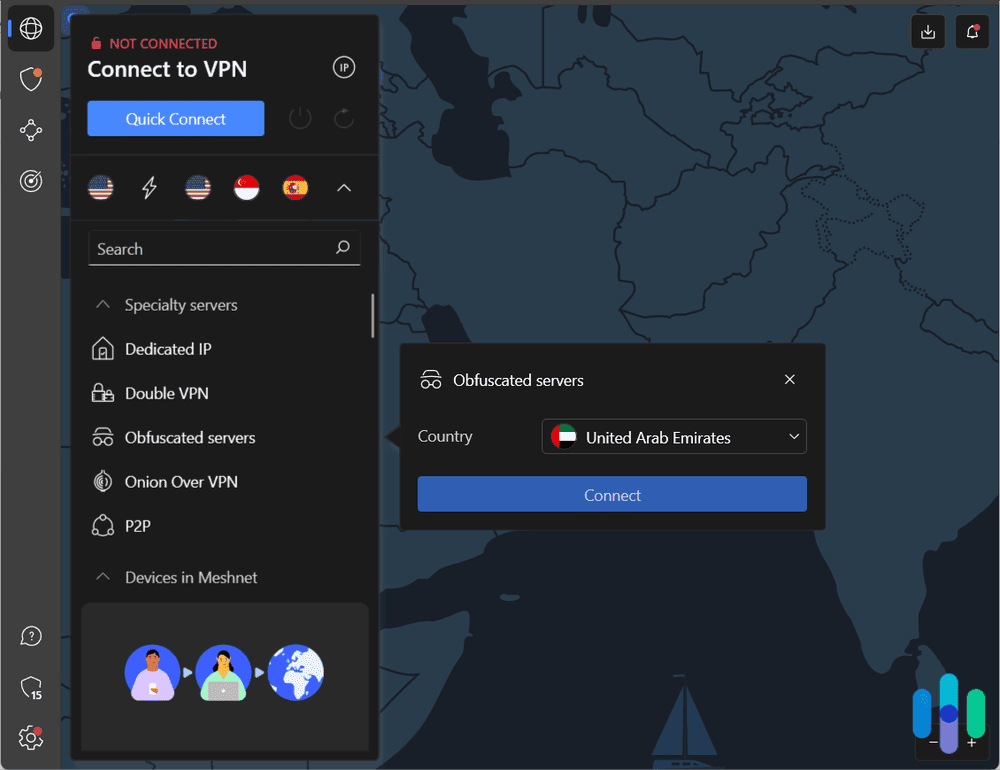
Fortunately, obfuscation helped us hide our VPN usage. NordVPN was actually one of the three best VPNs that we used in China since it let us connect to a specialty obfuscated server. And while we weren’t able to test TorGuard in China, its obfuscation mode got around our office firewall detection.
Static and Dedicated IP Addresses
There are two types of IP addresses offered by VPNs.
- Dynamic IP addresses: Most VPNs offer dynamic IP addresses as opposed to static ones. A dynamic IP address changes every time you connect to the VPN, which makes your connection stealthier as your VPN IP address is never the same. Both TorGuard and NordVPN gave us dynamic IP addresses.
- Static IP addresses: On the other hand, static IP addresses don’t change. They are useful if you need to connect to a service, website, or server with the same IP address every time. NordVPN doesn’t offer static IP addresses, but TorGuard has a pool of static IP addresses available. We used it to connect to an FTP server to transfer files.
If you’re not the sharing type, NordVPN and TorGard let you buy a dedicated IP address for a few extra dollars. As opposed to the IP addresses you get with a normal VPN connection, which are shared among hundreds if not thousands of users, dedicated IP addresses are your only. They can be useful if some of the websites you use have blocked the shared IP address.
A dedicated IP address from NordVPN costs $4.69 per month when you buy the two-year plan on top of your VPN subscription. You can choose from a pool of IP addresses from 18 countries.
On the other hand, TorGuard includes one free dedicated IP address in its Pro subscription, and each extra one costs an additional $7.99 per month. It’s more expensive, but only because it requires month-to-month payments. With the monthly plan, NordVPN’s dedicated IP address ends up costing $17.68 per month. You also get more options with TorGuard’s dedicated IP address:
- 60 regular IP addresses
- 33 streaming IP addresses
- 7 residential IP addresses
This was one area where TorGuard outclassed NordVPN.
FYI: Not everyone needs dedicated IP addresses, and even if you do, you likely don’t need tons of them. Our advice is to check the IP locations available from both VPNs, and see which one offers IP addresses located in the country you need to connect to.
Private DNS
This feature rarely gets talked about, but it’s necessary if you want your IP address to be completely hidden. A private DNS protects you from DNS leaks, which is one of the types of the VPN IP address leaks we watch out for. (The other type is a WebRTC leak.)
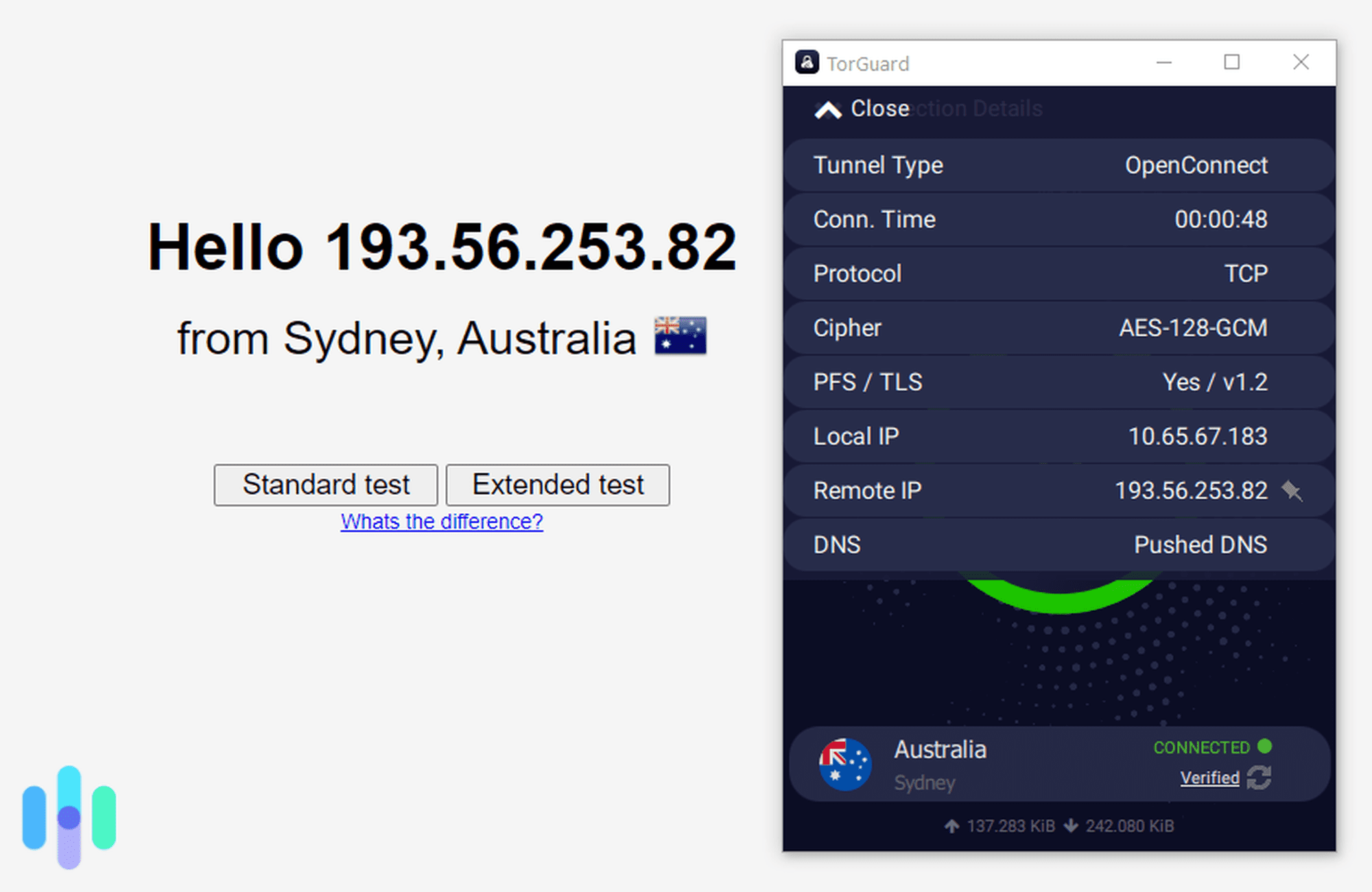
Essentially, instead of letting your DNS requests go to your internet provider’s DNS server, they go to your VPN provider’s private DNS. The VPN processes the requests itself, reducing the attack surface.
We couldn’t confirm where our DNS requests went while connected to NordVPN and TorGuard, but our DNS leak tests showed us that both VPNs did a great job hiding our real IP address. So while we don’t know for sure, we suspect that both VPNs use private DNS servers.
Pro Tip: When using a new VPN, always check that the VPN is working. That includes checking your IP address and performing DNS and WebRTC leak tests.
Advanced Features Winner
TorGuard takes the win on this one, given that it offers one free dedicated IP address, a pool of static IP addresses, and port forwarding — all of which NordVPN doesn’t offer. But that’s not the end of the story. Those are advanced features a VPN user might or might not need. They’re not exactly must-haves.
On the other hand, NordVPN doesn’t offer as many advanced features as TorGuard, but it delivers where it matters. It has split tunneling, a private DNS, multihop, the option to buy a dedicated IP address, malware, ad blocking, and a tiered subscription structure that caters to those who want to add other Nord Security tools to their toolbelt.
Pro Tip: We recently looked at NordPass, the password manager from Nord Security. It ended up claiming a spot in our list of the best password managers of 2025 because of its affordable pricing, impressive encryption (using XChaCha20), and user-friendly interface. You can give it a try with NordVPN’s Plus subscription.
>> Read More: NordVPN Review
Price Comparison
NordVPN and TorGuard aren’t obscenely expensive, but they do cost more than most of the VPNs we tested. You also have to consider the fact that if you’re choosing them for their advanced features, you need at least the mid-tier subscription. That’s the NordVPN Plus subscription plan and the TorGuard Pro plan that we compared above.
NordVPN Plus Plan
The reason we picked the NordVPN Plus plan was that it included features missing from the Basic plan that we initially bought. Those features were:
- Malware protection
- Tracker and ad blocker
- Data breach scanner
- Password manager
For context, here’s what you’ll get with every NordVPN subscription.
| NordVPN Features | Basic | Plus (recommended) | Complete | Prime |
|---|---|---|---|---|
| Split tunneling | Yes | Yes | Yes | Yes |
| Multihop | Yes | Yes | Yes | Yes |
| Kill switch | Yes | Yes | Yes | Yes |
| 10 simultaneous connections | Yes | Yes | Yes | Yes |
| Malware protection | No | Yes | Yes | Yes |
| Tracker and ad blocker | No | Yes | Yes | Yes |
| Data breach scanner | No | Yes | Yes | Yes |
| Password manager | No | Yes | Yes | Yes |
| 1 TB encrypted cloud drive | No | No | Yes | Yes |
| Identity theft protection | No | No | No | Yes |
| Cost per month | $12.99 | $13.99 | $14.99 | $17.99 |
| Cost per year + 3 months free | $68.85 (avg. $4.59/mo) | $82.35 (avg. $5.49/mo) | $97.35 (avg. $6.49/mo) | $142.35 (avg $9.49/mo) |
| Cost every 2 years + 3 months free | $99.63 (avg. $3.69/mo) | $126.63 (avg. $4.69/mo) | $153.63 (avg. $5.69/mo) | $229.23 (avg. $8.49/mo) |
Pro Tip: As is the norm for most VPNs, signing up for a longer NordVPN subscription unlocks savings. Plus with NordVPN’s current deal, you get three months for free with a one-year or two-year plan. That’s one of the best ways to get a free VPN.
TorGuard Pro Plan
As for TorGuard, we picked the Pro plan for the free dedicated IP address. The Standard plan (which is entry-level) offers a pool of static IP addresses, but a dedicated IP address comes at an extra cost. We also liked that the Pro plan can have up to 12 simultaneous connections, whereas the Standard plan allows only up to eight.
Here’s how TorGuard’s plans compare.
| TorGuard Features | Standard | Pro | Premium |
|---|---|---|---|
| Simultaneous connections | 8 | 12 | 30 |
| Kill switch | Yes | Yes | Yes |
| Multihop | Yes | Yes | Yes |
| Split tunneling | No | No | No |
| Ad blocking | Yes | Yes | Yes |
| Port forwarding | Yes | Yes | Yes |
| Dedicated IP address | Costs extra | 1 free | 1 free |
| Static IP address | Yes | Yes | Yes |
| Cost per month | $10.99 | $14.29 | $16.49 |
| Cost per year | $32.99 (avg. $2.75/mo) | $65.49 (avg. $5.46/mo) | $71.49 (avg. $5.96/mo) |
Pro Tip: If you’re looking to connect as many devices as you want, neither NordVPN nor TorGuard is the best choice. NordVPN lets you connect up to 10 devices at a time, while TorGuard’s Pro plan allows up to 12 only. There are VPNs we tested like Surfshark and Private Internet Access that allow unlimited simultaneous connections.
Price Winner
NordVPN’s mid-tier plans are marginally cheaper than TorGuard’s plans. Only the Standard option is cheaper than NordVPN’s equivalent, Basic. However, it’s not a huge difference across the board. If the extra few cents mean something to you, subscribe to NordVPN. But if you plan on paying month to month without any long-term commitments, TorGuard is the cheaper choice. We’ll call this category a draw.
Performance Comparison
So we’d say NordVPN and TorGuard are on par at the moment, with only a few minor differences between them. But now we’re going to talk about how they performed when we tested them, and as you’ll see, there was a clear-cut winner.
>> Learn More: Comparing VPN Providers in 2024
Speed
Let’s be clear, you’re going to lose some speed when using a VPN. However, some VPNs are better than others at managing the speed loss.
>> Read More: Speed Test Results From the Top VPNs Available
To compare NordVPN and TorGuard’s speed, we first connected our Windows laptop to our fiber-optic network via an Ethernet cable. And then we tested our baseline speed. After that, we connected and tested each VPN’s speed. We made sure to connect to the same location, which in this case was California. Then, we repeated the speed tests several times and averaged the results. After that, we computed the average speed loss (because lower speed loss means better speed).
| VPN Speed Metrics | NordVPN | TorGuard |
|---|---|---|
| Download speed loss | Down 5.78% | Down 39.19% |
| Upload speed loss | Down 4.11% | Down 45.61% |
| Latency (the lower the better) | 78 ms | 92 ms |
FYI: If you’re a gamer, you want your latency to be under 100 ms. So we’d recommend NordVPN as the better VPN for gaming.
NordVPN wins this round by a huge margin and it wasn’t surprising given that NordVPN is one of the fastest VPNs we tested. Moreover, TorGuard’s speed loss slightly exceeded our maximum standard for calling it a fast VPN. It wasn’t too slow given our 250 Mbps fiber-optic connection, but by our standards, it’s not a fast VPN.
App Experience
We have been testing NordVPN on-and-off for quite some time, and one thing we always praise about it is its well-designed app. It has evolved over the years, but it remains user-friendly and customizable. It has a very tech-y feel to it but it’s super-easy to use, what with the map-like interface for selecting servers and the very customizable settings menu. Our only gripe with it is that it uses up a lot of resources, especially the smartphone versions. They tend to use up battery power much faster than the more simplistic TorGuard app.
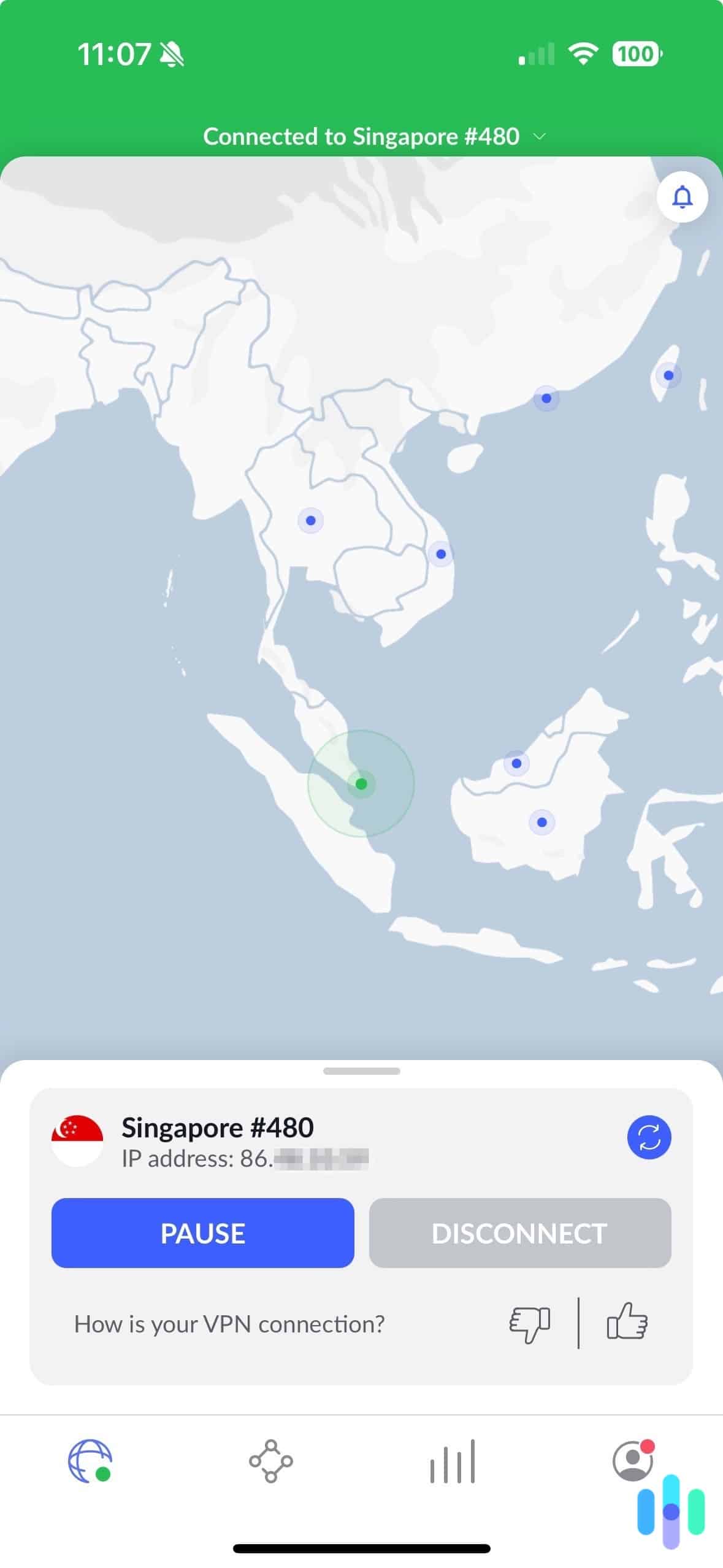
On the other hand, TorGuard’s app looks and feels a little dated. It also crashed on us a number of times, and we had to log in to the app every single time we opened it. We reached out to customer support, but they couldn’t fix our issues.
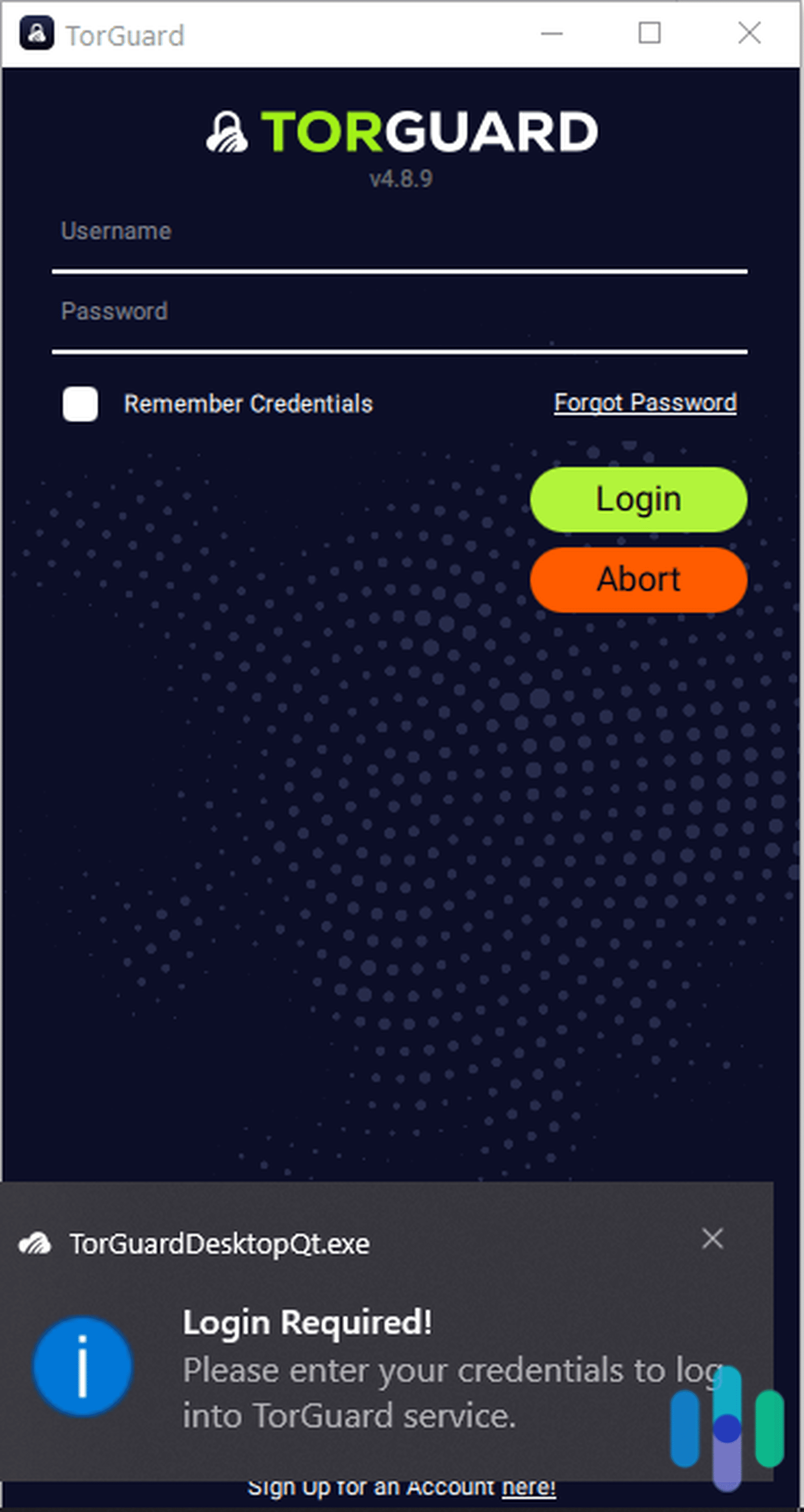
Other users seemed to agree with us as well for the Android app, but most users seem to have had a better experience on TorGuard’s iOS app. Here’s an overview of the ratings each VPNs app got:
| Platform | NordVPN | TorGuard |
|---|---|---|
| iOS | 4.7/5 | 4.6/5 |
| Android | 4.6/5 | 4.4/5 |
The numbers don’t lie. When it comes to VPN apps, NordVPN is the winner.
Privacy Policy
How much you trust a VPN to keep your data private is also a huge part of the VPN experience. Think of it like this: A VPN encrypts your browsing data so that the rest of the internet can’t intercept it, but the encryption keys and servers used belong to the VPN. So if the company wanted to, they could steal the very data you were looking to protect. That happens to a lot of free VPN users, where their browsing history is logged and sold to advertisers.
In fairness to NordVPN and TorGuard, both have a strict “no-logs” policy. It’s written right in their respective privacy policies that they do not log identifiable data about how customers use their services. Most importantly, the data they don’t log include the user’s IP address and browsing history. The question is, can you trust that they follow those protocols?
NordVPN makes a strong case here because it regularly submits its privacy policy and server network to third-party audits. An independent firm comes in to check NordVPN’s security and privacy protocols to see if they are in line with the VPN company’s privacy policy. NordVPN has passed all four independent audits it had gone through thus far. TorGuard, on the other hand, hasn’t been audited yet. We trust both companies, but we trust NordVPN more because of its willingness to be checked.
What’s the Verdict? NordVPN vs. TorGuard
It started close, but NordVPN eventually pulled away in the performance department. So our overall winner is NordVPN.
TorGuard isn’t a bad VPN by any means. It’s just that NordVPN proved to be better. Not only does it have the technical prowess to offer what most other VPNs can’t; it backs that up with a solid performance in terms of speed and privacy. And in the end, those are what should matter most to an average VPN user.
That’s not to say that NordVPN is the best choice for everyone, though. It has downsides too, like its 10-device limit for simultaneous connections and limited torrenting features. Before making a final decision, be sure to check out our NordVPN review.
NordVPN vs. TorGuard FAQs
-
Which offers more servers between NordVPN and TorGuard?
NordVPN offers more servers. It has over 6,000 servers in 111 countries, which is also the most locations we’ve seen from a VPN. TorGuard offers only half of those numbers (3,000 servers in 50 locations).
-
Which between NordVPN and TorGuard works on Linux?
Both NordVPN and TorGuard work on Linux. Both have a GUI app for the platform too.
-
Which is faster, NordVPN or TorGuard?
We saw from our tests that NordVPN loses up to eight times less speed than TorGuard, making NordVPN the faster VPN between the two.
-
Which is a better VPN for torrenting, NordVPN or TorGuard?
TorGuard’s port forwarding feature and pool of static IP addresses makes it a better choice for torrenting than NordVPN, which has neither of those features.
-
Does either NordVPN or TorGuard work with the Tor anonymity network?
If you’re a Tor user, NordVPN is the better option because it has specialty Onion over VPN servers. Despite its name, TorGuard actually doesn’t work that well with Tor. The “Tor” in its name is short for “torrent” and has nothing to do with the Tor network.

